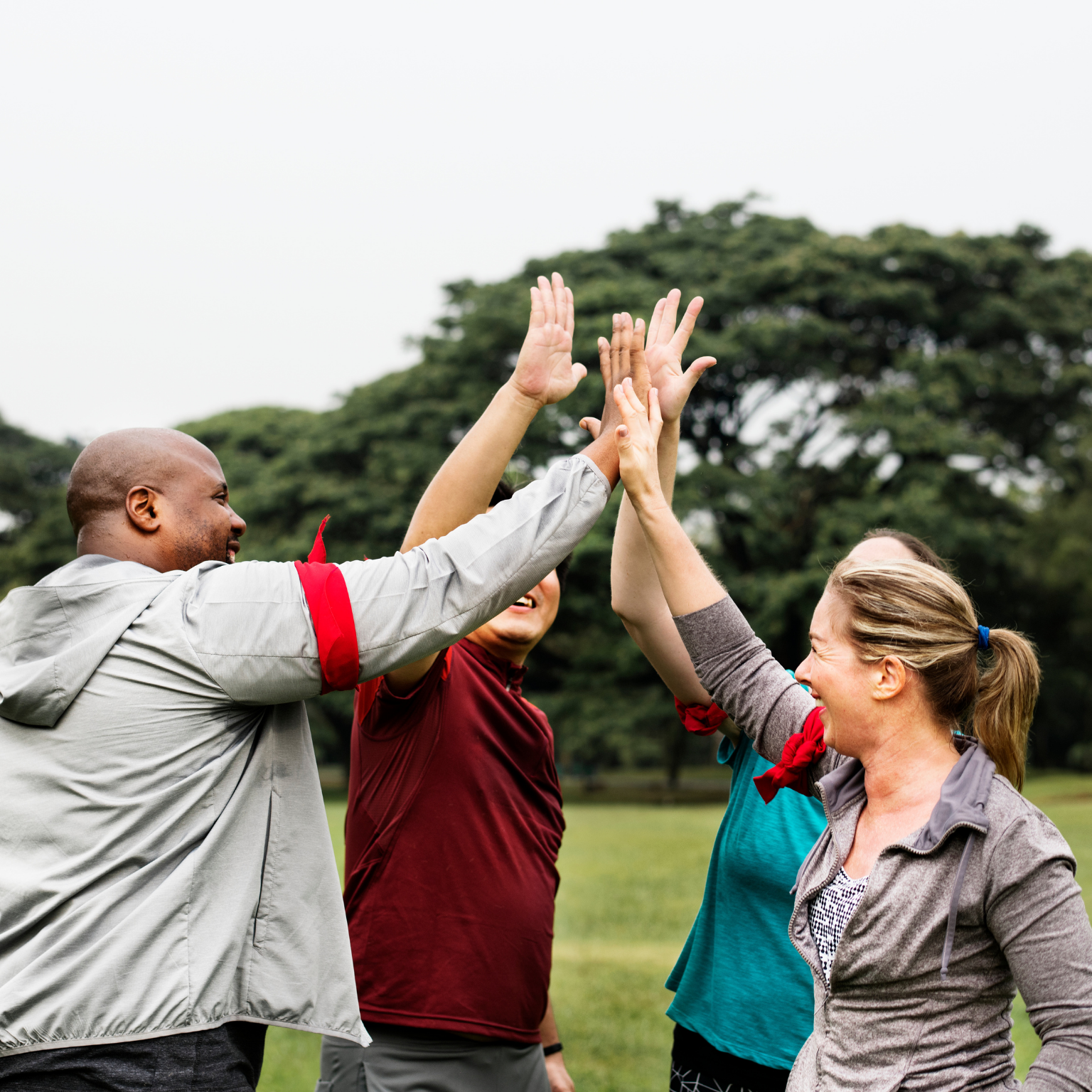Introduction: The Mind-Body Connection in Ageing
Mental health and cognitive function are crucial components of healthy ageing. While many people focus on physical health, brain health and emotional well-being are just as vital for longevity and quality of life. Research shows that maintaining a strong, active mind reduces the risk of cognitive decline, dementia, and depression in older adults (Livingston et al., 2020).
Ageing does not have to mean cognitive decline. With the right lifestyle habits, mental stimulation, and emotional resilience, we can maintain sharp thinking, strong memory, and emotional balance well into our later years. This article explores scientifically backed strategies to promote mental and cognitive well-being, helping you stay engaged and thriving.
The Science of Brain Ageing
As we age, certain cognitive changes occur, including:
- Slower information processing – Tasks may take longer to complete.
- Decline in working memory – Short-term recall and multitasking become more challenging.
- Reduced neuroplasticity – The brain’s ability to adapt and reorganise decreases.
- Increased risk of neurodegenerative diseases – Conditions such as Alzheimer’s and Parkinson’s become more prevalent.
However, research shows that lifestyle interventions can slow, or even prevent, cognitive decline (Bherer, 2015). The brain remains adaptable, and by engaging in the right activities, we can enhance neuroplasticity and cognitive function well into old age.
Key Strategies to Maintain Mental and Cognitive Health
1. Lifelong Learning and Mental Stimulation
Keeping the brain engaged improves memory, problem-solving skills, and cognitive flexibility. Activities that challenge the mind help create new neural connections, keeping the brain sharp.
Effective Mental Stimulation Activities:
- Reading books, newspapers, or research articles – Encourages critical thinking and comprehension.
- Learning a new skill or language – Stimulates different areas of the brain.
- Playing chess, Sudoku, or crossword puzzles – Enhances problem-solving and cognitive agility.
- Using technology (e.g., brain training apps like Lumosity or Elevate) – Improves memory and mental speed.
A study by Wilson et al. (2012) found that engaging in cognitively stimulating activities reduces the risk of Alzheimer’s by 30-50%.
Step-by-Step Guide to Incorporating Mental Stimulation:
- Dedicate 30 minutes daily to brain-challenging activities.
- Choose a new hobby that requires mental engagement (e.g., playing an instrument, painting, or coding).
- Join a discussion group or book club to stay socially and intellectually active.
- Switch up daily routines to force the brain to adapt (e.g., use your non-dominant hand for tasks).
2. Social Connection and Emotional Well-being
Loneliness and social isolation are major risk factors for depression, anxiety, and cognitive decline. Studies show that maintaining strong social connections reduces stress, boosts mood, and enhances brain health (Holt-Lunstad et al., 2015).
Ways to Stay Socially Connected:
- Maintain close relationships with family and friends.
- Participate in community groups, clubs, or volunteering activities.
- Join fitness classes, hobby groups, or online communities.
- Have regular conversations with people of different age groups to keep perspectives fresh.
Social interactions stimulate oxytocin production, a hormone linked to reduced stress and better emotional resilience.
Practical Steps for Strengthening Social Bonds:
- Schedule weekly meetups with friends or family.
- Volunteer or mentor to stay engaged with your community.
- Engage in group activities such as yoga, tai chi, or book clubs.
- Stay connected digitally if physical meetings are not possible (video calls, social media groups).
3. Regular Physical Activity and Brain Health
Exercise has profound effects on mental health and cognitive function. It increases blood flow to the brain, enhances neuroplasticity, and promotes the release of neurotransmitters like serotonin and dopamine (Colcombe & Kramer, 2003).
Best Types of Exercise for Brain Health:
- Aerobic Exercise (e.g., walking, jogging, swimming) – Improves memory and executive function.
- Strength Training – Reduces stress and supports neurogenesis.
- Mind-Body Exercises (e.g., yoga, tai chi) – Enhances relaxation and cognitive flexibility.
Step-by-Step Guide to Exercising for Brain Health:
- Start with 30 minutes of moderate exercise at least 5 days a week.
- Incorporate balance and coordination exercises (e.g., dancing or tai chi).
- Try new physical activities to challenge the brain (e.g., rock climbing, boxing).
- Practice deep breathing exercises post-workout to enhance relaxation.
4. Nutrition for Brain Function
Certain foods have been shown to protect against cognitive decline and support brain health. The MIND Diet (a combination of the Mediterranean and DASH diets) has been found to reduce the risk of Alzheimer’s by 53% when followed rigorously (Morris et al., 2015).
Best Brain-Boosting Foods:
- Leafy greens (spinach, kale) – High in vitamin K and folate.
- Fatty fish (salmon, sardines) – Rich in omega-3 fatty acids.
- Berries (blueberries, strawberries) – Packed with antioxidants.
- Nuts and seeds (almonds, walnuts, flaxseeds) – Support cognitive function.
- Dark chocolate – Improves blood flow to the brain.
Step-by-Step Guide to a Brain-Healthy Diet:
- Increase intake of omega-3-rich foods like salmon and walnuts.
- Reduce processed sugars and refined carbs, which contribute to inflammation.
- Drink plenty of water to support brain function.
- Incorporate antioxidant-rich foods like berries into daily meals.
5. Stress Reduction and Quality Sleep
Chronic stress and poor sleep negatively impact memory, focus, and emotional stability. Research suggests that 7-9 hours of quality sleep per night is essential for cognitive function and emotional regulation (Walker, 2017).
Effective Stress and Sleep Management Techniques:
- Mindfulness meditation – Reduces cortisol levels and enhances focus.
- Deep breathing exercises – Lowers anxiety and promotes relaxation.
- Consistent sleep schedule – Helps regulate circadian rhythms.
- Limiting screen time before bed – Prevents blue light interference with melatonin production.
Step-by-Step Guide to Better Sleep and Stress Management:
- Establish a bedtime routine (e.g., reading, warm bath, herbal tea).
- Use relaxation techniques like progressive muscle relaxation.
- Create a comfortable sleep environment (cool, dark, and quiet).
- Engage in daily stress-relief practices such as journaling or mindfulness.
Conclusion: A Holistic Approach to Brain Health
Mental and cognitive well-being are key components of ageing well. By incorporating mental stimulation, social engagement, exercise, proper nutrition, and stress management, you can protect your brain and enhance your overall quality of life.
The journey to lifelong mental resilience starts with small, consistent habits. What will you do today to sharpen your mind?
Next Up: Longevity Science and Advances—Exploring the Cutting-Edge Research on Ageing Well.
References
- Bherer, L. (2015). Cognitive plasticity in older adults: Effects of cognitive training and physical exercise. Annals of the New York Academy of Sciences, 1337(1), 1-6.
- Colcombe, S., & Kramer, A. F. (2003). Fitness effects on the cognitive function of older adults: A meta-analytic study. Psychological Science, 14(2), 125-130.
- Livingston, G., et al. (2020). Dementia prevention, intervention, and care. The Lancet, 396(10248), 413-446.
- Morris, M. C., et al. (2015). MIND diet slows cognitive decline. Alzheimer’s & Dementia, 11(9), 1015-1022.
- Walker, M. P. (2017). Why we sleep. Scribner





